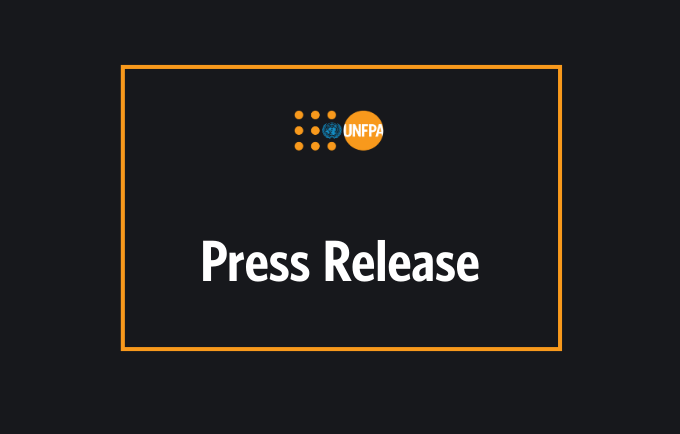UNFPA cooperates with FOCP to reduce cervical cancer burden in the Arab Region
Sharjah/United Arab Emirates, 10 November 2020 - United Nations Population Fund, Arab States Regional Office (ASRO) signed a Memorandum of Understanding (MoU) with the Friends of Cancer Patients (FOCP), a UAE based civil society organization to boost collaborative efforts in reducing the burden of cervical cancer on the Arab states.
The MoU aims to advance awareness raising; combined advocacy efforts; and evidence generation and knowledge sharing on reproductive health, women empowerment and non-communicable diseases, with a focus on reproductive health cancers, cervical cancer, in particular.
Cervical cancer still causes at least 7,600 deaths per year among women in the MENA region. “UNFPA is committed to support national governments with the development or update of their cervical cancer prevention and control programmes (...) I’m feeling privileged to be here today and officially announce the UNFPA ASRO partnership with Friends of Cancer Patients, a long-standing partner and renowned champion for the prevention of cervical cancer” said Dr. Luay Shabaneh, Regional Director, UNFPA Arab States.
During the same event, Dr. Shabaneh, together with Mrs. Sawsan Jafar, Chairman of FOCP Board of Directors, announced the 2nd Cervical Cancer Forum in January 2021. This forum under the title “Accelerating Action on HPV and Cervical Cancer” will be the first joint event after the MoU signature between FOCP and UNFPA ASRO. It will also be a follow up forum to the first edition organized by FOCP in collaboration with UNFPA ASRO and the MENA Coalition for HPV Elimination, in January 2019 in Sharjah, that resulted in announcing the “Sharjah Declaration on Cervical Cancer 3x3”.
Describing the partnership with UNFPA ASRO as significant and timely, Mrs. Sawsan Jafar explained, “if decisive action is not taken now, 42 women will die each day from a preventable disease, cervical cancer, in the MENA region by 2040.”
She added: “Building on the work FOCP has done to date to enhance women’s access to cervical cancer screening and treatment in the region, and in support of UNFPA’s global efforts to increase awareness of the disease, I am pleased to announce that the second Cervical Cancer Forum will be taking place in January 2021. At the forum, we will review the progress of the three-pronged integrated strategy implemented under the ‘2019 Sharjah Declaration on Cervical Cancer’, and discuss the establishment of sustainable cervical cancer and HPV eradication programmes. I am confident that this forum will offer a strong impetus to local, regional and international health communities and centres of medical knowledge in mobilising their efforts and building their capacities… to ensure that future generations of women do not have to succumb to a preventable and treatable cancer.”
UNFPA works in more than 150 countries which are home to more than 80% of the world population. UNFPA programmes promote women’s reproductive and maternal health, prevent gender-based violence (GBV), support youth empowerment, and conduct data generation and analysis that are essential for planning and evidence based decision making both in development and humanitarian contexts. In the Arab region UNFPA covers a total of 20 states, including the GCC countries. The UNFPA mandate is based on the Programme of Action of the International Conference on Population and Development (ICPD) and aligned with the 2030 Agenda of the Sustainable Development Goals (SDGs).
FOCP UAE is a charitable Society, founded in 1999 under the directives and patronage of Her Highness Sheikha Jawaher bint Mohammed Al Qasimi, Wife of the Ruler of Sharjah-UAE, Founder and Royal Patron of the Friends of Cancer Patients UAE, International Ambassador of the World Cancer Declaration for Union for International Cancer Control (UICC), and Patron of the Global NCD Alliance Forum. It is the leading civil society organisation in the UAE that advocates to promote cancer screenings and awareness of the early detectable cancers. FOCP UAE has advocated the importance of cervical cancer screenings and prevention since 2008.
-END-


